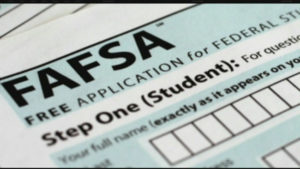 Today’s top story: Should students gamble on an Income Share Agreement? Also in the news: How to make a debt-free switch to cashless payments, 4 home insurance pitfalls to avoid during hurricane season, and see how much home you can afford with the 30/30/30 rule.
Today’s top story: Should students gamble on an Income Share Agreement? Also in the news: How to make a debt-free switch to cashless payments, 4 home insurance pitfalls to avoid during hurricane season, and see how much home you can afford with the 30/30/30 rule.
Should Students Gamble on an Income Share Agreement?
An ISA can be a risk for students seeking college funding. But during an economic downturn, it might be worth it.
How to Make a Debt-Free Switch to Cashless Payments
Changing how we pay during the pandemic.
4 home insurance pitfalls to avoid during hurricane season
Don’t be skimpy.
See How Much Home You Can Afford With the 30/30/30 Rule
Existing home sale prices are increasing.
 Today’s top story: How to adjust your school supplies budget for the online classroom. Also in the news: 5 things to do with all that money you haven’t been spending the past few months, is moving now the best financial move for Millennials, and how COVID-19 may impact applying for financial aid.
Today’s top story: How to adjust your school supplies budget for the online classroom. Also in the news: 5 things to do with all that money you haven’t been spending the past few months, is moving now the best financial move for Millennials, and how COVID-19 may impact applying for financial aid.  Today’s top story: How first-home shoppers can keep a cool head in a hot market. Also in the news: When debt relief does more harm than good, how to make a debt-free switch to cashless payments, and what to know before using buy now, pay later financing.
Today’s top story: How first-home shoppers can keep a cool head in a hot market. Also in the news: When debt relief does more harm than good, how to make a debt-free switch to cashless payments, and what to know before using buy now, pay later financing.